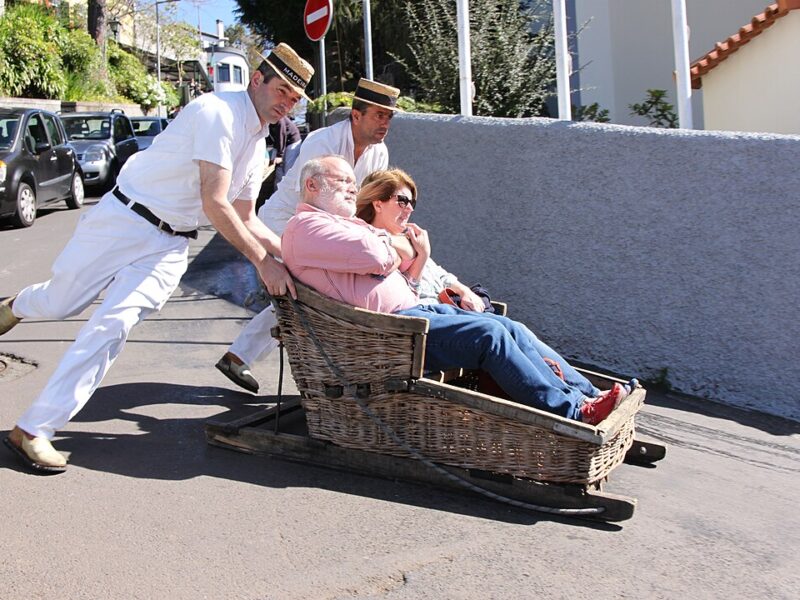Everyone wants to travel again like they did before the pandemic struck, but just how ethical is it to be visiting other countries and even regions of your own country in the midst of the COVID-19 outbreak?
That was the first question posed to a trio of travel journalists by G Adventures founder Bruce Poon Tip who participated in an online discussion he moderated from his Toronto office last Wednesday entitled Retravel Live: An important discussion about travel.
Juliet Kinsman , the sustainability editor of Condé Nast Traveller, U.K. and the author of The Green Edit: Travel: Easy tips for the eco-friendly traveller, thought it was a question that few people were actually asking and felt it was an important one, but her answer fell short of providing a clear recommendation.
“I personally have tried to park my judgment throughout this time,” said Kingsman. “I cannot tell you whether you could or should travel to that destination. You do what’s right for you. As with anything in life, you just think if you are ever putting anyone else in danger and therefore making a decision that they’re not complicit with well, I guess you shouldn’t do it.”
Poon Tip thought that people should think of travel as a privilege and not a right, but didn’t think that it was necessarily the best time to be exploring the world.
“I think everyone agrees that non-essential travel right now is not something that anyone would suggest, but if they’re talking about when borders start to open and when people are allowed to travel and there’s inherent risk prior to a vaccine, I think it’s your choice and I do think you can do it an ethical way,” he said.
Another of the panelists, Elizabeth Becker, the author of Overbooked: The Exploding Business of Travel and Tourism, felt that it was okay to visit other places during the pandemic, but to scrupulously follow whatever health guidelines those destinations have put in place and that we need to be mindful of the safety others, no matter where we go.
“I would like all of us to think that we’re citizens of where we are and where we are going to visit so if you’re visiting somewhere, you follow those rules. You may not like them; you may argue with them; you may think you can avoid the two-week quarantine. No, that’s not ethical, as well as not legal,” she said.
Helping tourism destinations from home
Becker reminded people that whatever place they live in is also a tourist destination for others so if you can’t travel, then consider frequenting restaurants and other tourist attractions in your own home town in order to support them during this downturn. If you have a favourite faraway place that is reliant on tourism, then consider making some kind of donation that will help people there, she added.
“That’s all I can do,” she said. “I can’t solve the world’s problems, but I feel much better thinking of my own city and of the place that I love.”
George Stone, the editor of National Geographic Traveler U.S., said that during the pandemic he has personally been donating $100 each month to a different charity and suggested travellers think about places that have been special for them and find ways to give money back, especially if it can help hospitality workers or others who work in tourism-related businesses that have been hard hit by the lack of visitors.
“It’s not a fortune, but it’s actually been really fun for me and then when a new month happens, I’m like ‘oh, what am I going to do?” he said. “I spent some time in North Carolina so I gave to Appalachian Mountain Conservancy. So (look for) things that touch you… recollect some of those memories and then do a little something (for that place.)”
Predicting where travel will be in five years
Much of the rest of the 75-minute conversation dealt with the future of travel after the pandemic and the importance of reinventing an industry that accounts for 10 percent of the world’s GDP. The consensus was that the status quo is not sustainable and that the pandemic may be a blessing in disguise as it gives us an opportunity to re-evaluate how we want to travel in the future.
Becker spoke about the environmental degradation caused by our globetrotting ways and could even see there being no-fly days in the future in order to curb global emissions. She hoped that industry leaders become more political, not to get favourable handouts from governments and looser regulations, but to be at the table, fighting for a greener future.
“I want to see the travel industry as political as anybody else about protecting the planet,” she said.
Stone said he believes that we are going to see a better sort of traveller after the pandemic, someone who is more engaged in the conversations that are relevant to places and has a more nuanced sense of the layers that go into a destination.
“In this period of racial reckoning, I’m someone who really is thinking more critically about communities and identity,” he added. “I don’t see how we can go through this and not come out touched and moved and changed so, aspirationally, I really want to see travellers at their best in five years asking tough questions and then that’s going to lead to the impacts and the bigger changes that both Julia and Elizabeth have pointed to so my goal is to try to support that.”
Poon Tip said that he and the leadership of G Adventures are using the opportunity of the slowdown to reinvent how they do business, thinking like a startup with 30 years of knowledge of experience.
“I’m of the mindset that travel wasn’t in a great place before this forced pause and so there’s great opportunity for us to rethink and restart,” said Poon Tip, a topic which he also touched upon in freely available instabook Unlearn – The Year the Earth Stood Still.
“If we get anything out of this pandemic, I hope that that a small group of people understand the power and privilege they have when they decide to travel,” said Poon Tip. “There are so few people on this planet that have that luxury to say I’m bored with my present community environment and I want to travel to somewhere else to see another community environment. This is a luxury that we have. It’s not a right, it’s a privilege that we have in the developed world.”
G Adventures plans to host similar conversations about the future of travel. The next one will be October 15 at 12:30pm EDT when world-renowned primatologist Dr. Jane Goodall, DBE will join Poon Tip to discuss travel’s impact on wildlife around the world and how travellers can do their part to help protect the creatures that we share our planet with.
Join the conversation by signing up at https://retravellive.com/.

